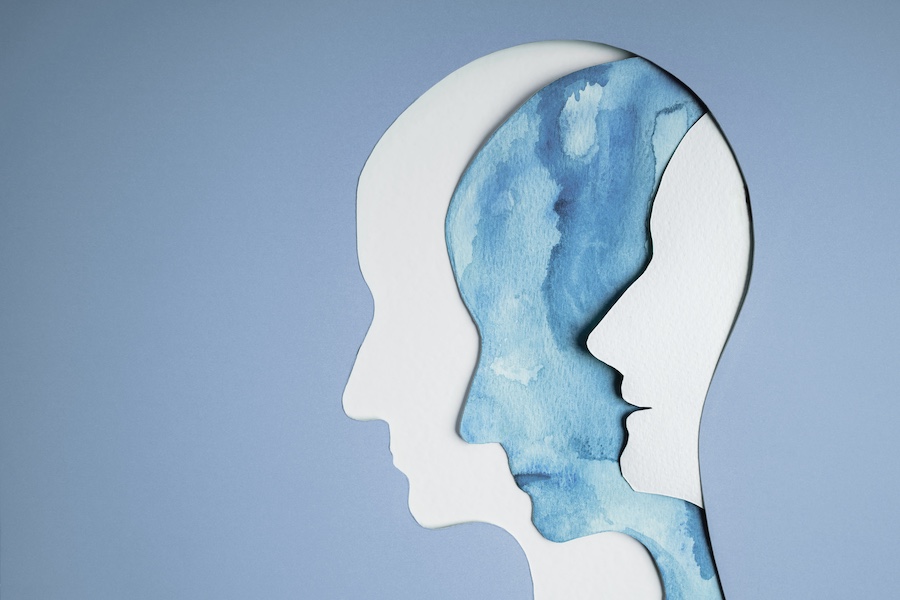The Gut-Brain Connection: How It Impacts Mental Health
Your gut may hold the key to better mental health, and the science behind this connection is more compelling than ever.
For decades, we’ve known the brain influences the gut. But new research reveals this relationship flows both ways. Your digestive system houses what scientists call your “second brain” — a network of over 100 million nerve cells that not only controls digestion but also communicates directly with your brain to influence mood, stress levels, and mental well-being.
Your Gut: The Unexpected Mood Regulator

The numbers are striking: about 95% of your body’s serotonin — the neurotransmitter that regulates mood — is produced in the gut, not the brain. This “second brain,” known as the enteric nervous system, contains 500 million neurons and endocrine cells that sense nutrients, toxins, and microbes while producing over 30 brain chemicals that affect how you feel.
When your gut health suffers, so can your mental health. And the reverse is also true — emotional stress can disrupt digestion. This constant two-way exchange is the core of the gut brain connection and mental health research. Just as emotional stress can create physical symptoms, your gut health can also influence your mental state. Learn more about emotional stress physical symptoms
The Science Behind Gut-Brain Communication
Studies show that chronic gut inflammation can alter brain chemistry and behavior, with effects tied to the duration of digestive illness. The brain interprets inflammation as a sickness signal, which triggers changes in brainstem, limbic, and prefrontal regions that regulate mood and stress response.
This communication happens through multiple pathways:
- Neural signals via the vagus nerve
- Immune system inflammation markers
- Bacterial metabolites crossing the blood-brain barrier
- Hormonal signaling between gut and brain
These strategies are a starting point. But if you suspect hidden gut issues are fueling anxiety, fatigue, or stress, Michelle Johnson at Synergetics Health and Wellness can help you uncover the root causes through advanced gut and functional lab testing.
6 Evidence-Based Strategies to Strengthen the Gut Brain Connection and Mental Health
1. Eliminate Inflammatory Foods
Diet strongly influences gut microbiota. Inflammatory foods weaken the gut lining, allowing harmful compounds to enter the bloodstream and affect brain function.
Foods to minimize:
- Gluten (linked to intestinal permeability)
- Processed foods with additives
- Refined sugars and starches
- Ultra-processed packaged foods
Not sure which foods are driving your inflammation? Michelle Johnson offers personalized testing and guidance to identify food triggers and calm the gut.
2. Add Anti-Inflammatory Foods

Key nutrients for gut healing:
- Glutamine-rich foods (such as grass-fed red meat) to repair the gut lining
- Omega-3 fatty acids (from fatty fish) to reduce inflammation
- Polyphenol-rich foods (berries, leafy greens) to feed beneficial bacteria
High-fiber diets also reshape the microbiome and reduce brain inflammation — another proven link between gut health and mood.
3. Implement Intermittent Fasting
Different fasting windows improve microbiome diversity and increase beneficial bacteria such as Lactobacillus and Bifidobacterium.
Benefits include:
- More Akkermansia (linked to metabolic and gut health)
- Greater microbial diversity
- Reduced gut inflammation
- Increased short-chain fatty acids that support brain function
A practical start: Try a 12-hour eating window (8 AM to 8 PM) and gradually lengthen fasting time.
4. Use Prebiotics and Probiotics

Fiber-rich foods act as prebiotics that feed beneficial bacteria:
- Vegetables, legumes, beans
- Whole grains (if tolerated)
Probiotics directly introduce good bacteria:
- Plain yogurt with live cultures
- Fermented vegetables like sauerkraut and kimchi
- Kefir and other fermented dairy
Research shows probiotics can reduce depressive symptoms, sometimes matching the effectiveness of antidepressants for mild to moderate depression.
Probiotics aren’t one-size-fits-all. Michelle Johnson helps clients identify the right strains and dosages based on individual gut profiles.
5. Exercise for Microbiome Balance
Exercise enriches microbial diversity and supports bacteria that produce short-chain fatty acids, which improve mental clarity and emotional balance.
How it helps:
- Increases beneficial bacteria
- Enhances nutrient absorption and digestion
- Reduces gut inflammation
- Improves serotonin production
If digestive issues or fatigue keep you from regular exercise, Michelle Johnson can help address the root causes so your energy returns.
6. Stay Hydrated

Water is essential for both digestion and mental function. It:
- Maintains gut barrier integrity
- Supports neurotransmitter production
- Flushes toxins from the body
- Enhances blood flow to gut and brain
Target: Half your body weight in ounces per day, adjusted for activity and climate.
Clinical Evidence: Probiotics vs. Antidepressants
A meta-analysis comparing probiotics to antidepressants found probiotics ranked second only to escitalopram — and outperformed several common antidepressants like citalopram and duloxetine.
In clinical trials, 55% of patients taking probiotics achieved remission compared to 40% in placebo groups, with benefits becoming stronger after 8 weeks of consistent use.
Key Takeaways: The Gut Brain Connection and Mental Health
The evidence is clear: anxiety and depression aren’t just “in your head.” They’re connected to gut health through a network of nerve cells, neurotransmitters, and microbiome activity that regulate stress and mood.
By focusing on your gut health, you can:
- Boost natural serotonin production
- Lower inflammation tied to mood disorders
- Increase beneficial bacteria that regulate emotions
- Strengthen the gut barrier that protects brain health
Start with one or two of these strategies today. Your microbiome begins to change within days of dietary shifts, and mental health benefits often follow soon after.
Your gut and brain are in constant conversation. Supporting that connection is one of the most effective ways to restore balance. For a personalized plan tailored to your needs, schedule a consultation with Michelle Johnson at Synergetics Health and Wellness in Summerlin today. Call 702-240-3533 or email info@synergeticshealth.com






